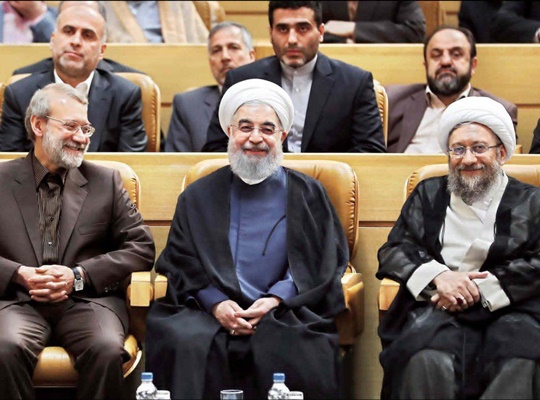The analysis by Haaretz is half right but at the same time half wrong drawing on wrong premises.
The analyst rightly discerns the stable standing of the Islamic Republic in the region but makes a blatant mistake in trying to find the consequences of Iran’s internal divisions in its regional policy. This is the same mistake that the US and its allies have committed many times over the past decades without learning a lesson.
Last month, the two main political camps in the Islamic Republic, the conservatives and the reformists, unanimously condemned the interventionist statements made by US Secretary of State Rex Tillerson. He had called for a regime change in Iran through interfering in the domestic affairs and realignment of the political factions of the country.
Having misunderstood the internal divisions in Iran, the US top diplomat had pinned hope on the reformist camp to topple the Islamic Republic. But he immediately faced fierce criticisms voiced by reformist figures who vehemently denounced the US and reaffirmed their allegiance to the Islamic Establishment.
Just recently, a plot by the US and its regional allies to broaden divisions in the Islamic Republic was foiled by the Iranians’ high turnout in the presidential election on the one hand, and the crushing response of the religious minorities to their demands on the other.
In less than one week ahead of the presidential election in May, the Friday prayer leader of the Sunni-populated city of Zahedan in southern Iran said the Sunnis proudly devote themselves to Iran. In response to a question on the foreigners’ efforts to broaden ethnic and religious conflicts in Iran, he called on all Iranians from all walks of life to stick to legal and political principles to resolve disputes and achieve their legal rights.
Last month, the Islamic Revolution Guards Corps (IRGC) fired several missiles at the positions of ISIS terrorists in the Syrian city of Deir az-Zor in retaliation for twin terrorist attacks on Iran’s parliament and the mausoleum of late founder of the Islamic Republic, Imam Khomeini in Tehran. The missile strikes were carried out from two Kurdish-populated cities in Kermanshah province, western Iran. The strikes were aimed at sending a clear message to the terrorists: Iranians do not hesitate in defending their country against enemies’ attacks. The message became clearer after the participation of former commander of IRGC, Major General Mohsen Rezaee, in the Sunnis’ Eid al-Fitr Prayer in the province.
As the latest show of grown-up interactions between Iranian political camps, Ali Reza Zakani, a former conservative lawmaker, called for a self-restraint at his camp.
As the US, Israel and Saudi Arabia in line with some European states have pinned their hopes on the terrorist Mojahedin-e-Khalq Organization (MKO or MEK) to make a regime change in Iran, a call for a unilateral ceasefire by a conservative politician was warmly welcomed by many reformist figures.
In response, one of the main figures of the reformist camp, Abdollah Ramezanzadeh, called for a national dialogue. In a post on his Twitter, he wrote, “In an appropriate move, Mr. Zakani has advised his camp to observe a unilateral ceasefire, but why unilateral? Let’s start a national dialogue.”
The high turnout in the recent elections is a sign of true religious democracy in Iran and the current interactions between the conflicting political camps is one of the main fruits of such democracy.
Despite their bitter disputes over many issues, the camps are united against the foreign enemies and prioritize the national security over their factional interests.
In a nutshell, if the Israeli analyst was familiar with the concept of religious democracy, he would not wonder why Iran’s regional standing is not undermined by it internal divisions.
